Dmytro Mishkin
All you need is a good init
Feb 19, 2016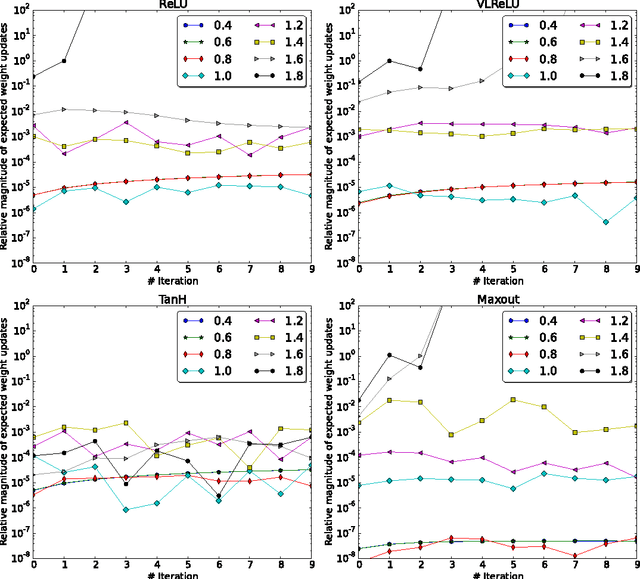
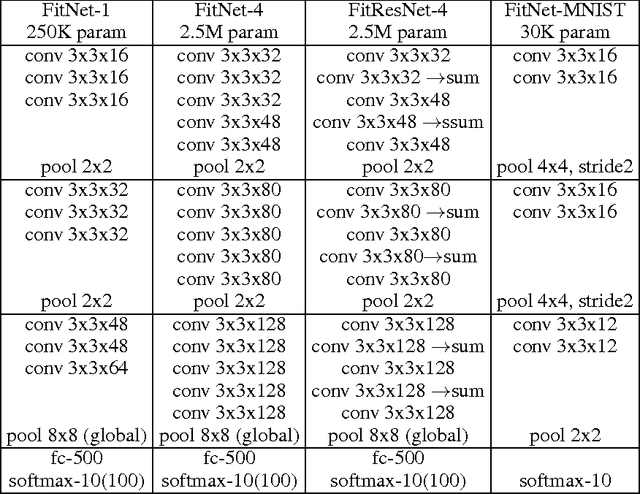
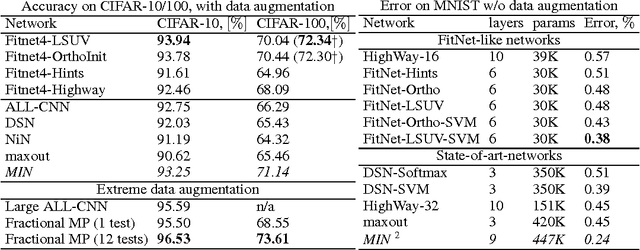
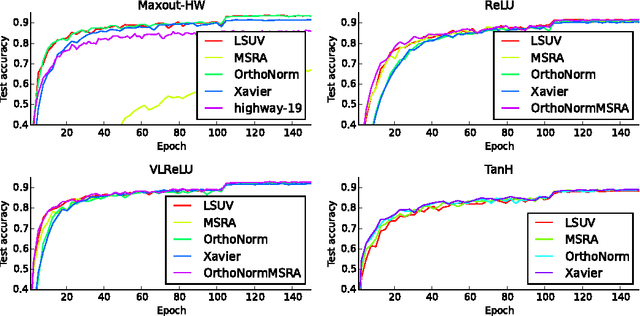
Abstract:Layer-sequential unit-variance (LSUV) initialization - a simple method for weight initialization for deep net learning - is proposed. The method consists of the two steps. First, pre-initialize weights of each convolution or inner-product layer with orthonormal matrices. Second, proceed from the first to the final layer, normalizing the variance of the output of each layer to be equal to one. Experiment with different activation functions (maxout, ReLU-family, tanh) show that the proposed initialization leads to learning of very deep nets that (i) produces networks with test accuracy better or equal to standard methods and (ii) is at least as fast as the complex schemes proposed specifically for very deep nets such as FitNets (Romero et al. (2015)) and Highway (Srivastava et al. (2015)). Performance is evaluated on GoogLeNet, CaffeNet, FitNets and Residual nets and the state-of-the-art, or very close to it, is achieved on the MNIST, CIFAR-10/100 and ImageNet datasets.
WxBS: Wide Baseline Stereo Generalizations
May 12, 2015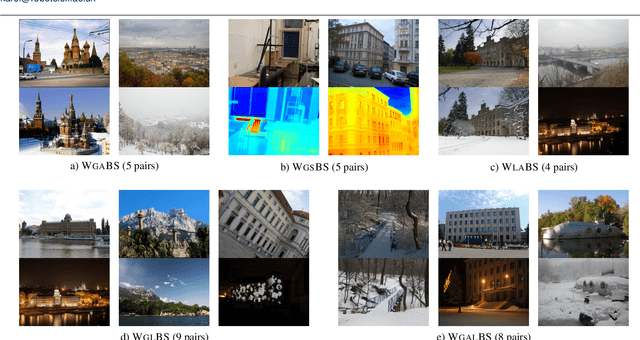
Abstract:We have presented a new problem -- the wide multiple baseline stereo (WxBS) -- which considers matching of images that simultaneously differ in more than one image acquisition factor such as viewpoint, illumination, sensor type or where object appearance changes significantly, e.g. over time. A new dataset with the ground truth for evaluation of matching algorithms has been introduced and will be made public. We have extensively tested a large set of popular and recent detectors and descriptors and show than the combination of RootSIFT and HalfRootSIFT as descriptors with MSER and Hessian-Affine detectors works best for many different nuisance factors. We show that simple adaptive thresholding improves Hessian-Affine, DoG, MSER (and possibly other) detectors and allows to use them on infrared and low contrast images. A novel matching algorithm for addressing the WxBS problem has been introduced. We have shown experimentally that the WxBS-M matcher dominantes the state-of-the-art methods both on both the new and existing datasets.
Two-View Matching with View Synthesis Revisited
Nov 11, 2013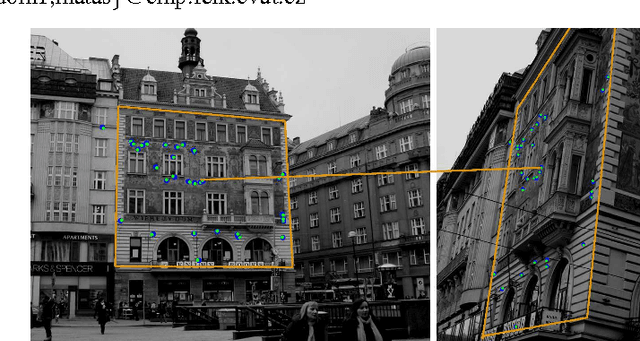
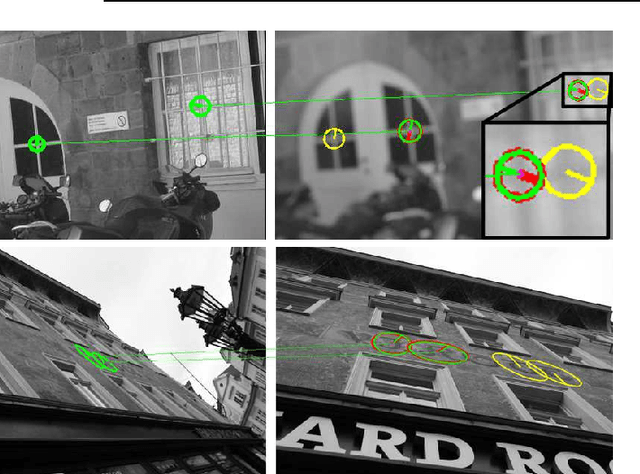
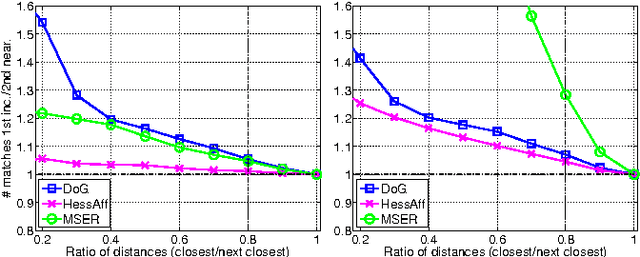
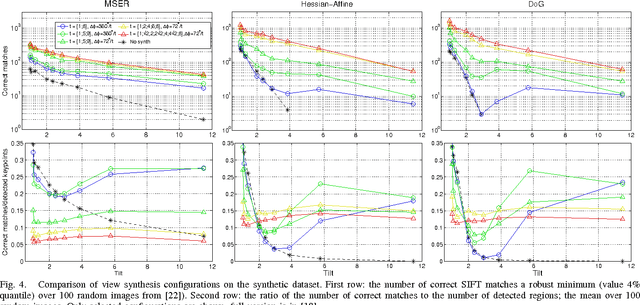
Abstract:Wide-baseline matching focussing on problems with extreme viewpoint change is considered. We introduce the use of view synthesis with affine-covariant detectors to solve such problems and show that matching with the Hessian-Affine or MSER detectors outperforms the state-of-the-art ASIFT. To minimise the loss of speed caused by view synthesis, we propose the Matching On Demand with view Synthesis algorithm (MODS) that uses progressively more synthesized images and more (time-consuming) detectors until reliable estimation of geometry is possible. We show experimentally that the MODS algorithm solves problems beyond the state-of-the-art and yet is comparable in speed to standard wide-baseline matchers on simpler problems. Minor contributions include an improved method for tentative correspondence selection, applicable both with and without view synthesis and a view synthesis setup greatly improving MSER robustness to blur and scale change that increase its running time by 10% only.
 Add to Chrome
Add to Chrome Add to Firefox
Add to Firefox Add to Edge
Add to Edge